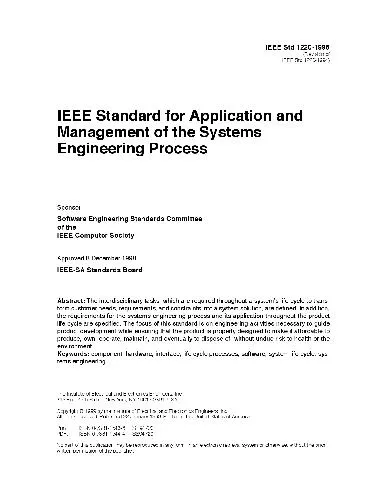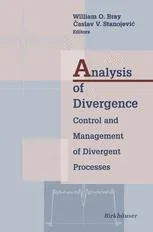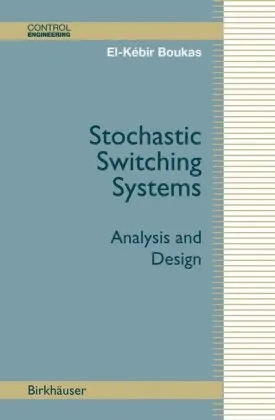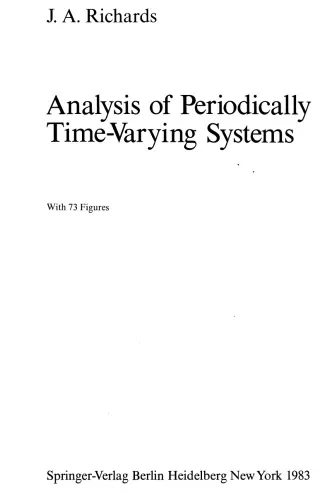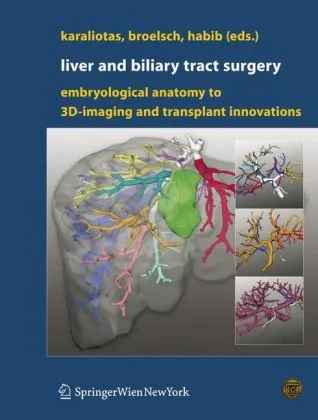Dissipative Systems Analysis and Control: Theory and Applications (Communications and Control Engineering)
4.3
Reviews from our users

You Can Ask your questions from this book's AI after Login
Each download or ask from book AI costs 2 points. To earn more free points, please visit the Points Guide Page and complete some valuable actions.Related Refrences:
Introduction to "Dissipative Systems Analysis and Control: Theory and Applications"
In a world driven by dynamic systems and inevitable uncertainties, understanding the fundamental principles of system control and analysis is paramount. "Dissipative Systems Analysis and Control: Theory and Applications" serves as a crucial resource for scholars, students, and professionals who seek to delve into the intricacies of dissipative systems and their control applications. This book, a part of the Communications and Control Engineering series, lays down a structured approach to analyzing and regulating dissipative systems, which are an essential class of systems frequently encountered in various engineering domains.
Detailed Summary
The book begins by introducing the core concepts of dissipative systems, offering a comprehensive theoretical foundation. It covers the history and development of dissipative systems from their inception to modern-day applications. The discussion extends to the classical theory of dissipative systems, highlighted by the systematic presentation of energy-based methods that aid in understanding system behavior.
Further, the book delves into feedback control strategies pertinent to dissipative systems. It includes a detailed exploration of passivity-based control, which is a subset of dissipative systems theory. The authors incorporate nonlinear control methods that emphasize robustness and adaptability, making the book relevant to real-world applications where linear assumptions fall short.
One of the critical strengths of this book is its application orientation. It provides numerous real-world examples and exercises across various fields, such as mechanical, electrical, and aerospace engineering. These examples demonstrate the efficacy of the theorized methods and provide readers with a practical understanding of the application of these strategies.
Key Takeaways
- Understanding the framework of dissipative systems and their characterization.
- Insights into energy-based methodologies for system analysis.
- Application of passivity and feedback control in nonlinear systems.
- Real-life engineering applications illustrated with comprehensive case studies.
- Enhancement of problem-solving skills through exercises at the end of each chapter.
Famous Quotes from the Book
"Understanding dissipative systems is not just about solving equations; it's about deciphering the language of energy flow and stability."
"The elegance of control engineering lies in its balance between theoretical elegance and practical applicability."
Why This Book Matters
This book holds significant relevance for anyone involved in systems engineering and control. Dissipative systems form the backbone of many technological advancements, and understanding their dynamics is crucial for innovation. The authors, each mastering different facets of control theory, bring a holistic perspective to the reader, merging classical knowledge with contemporary advancements.
By reading this book, one gains not only a theoretical understanding but also the ability to apply this knowledge effectively, hence bridging the gap between academia and industry. It's an indispensable guide for those seeking to advance in control engineering, equipping them with the necessary tools to tackle modern engineering challenges.
Free Direct Download
You Can Download this book after Login
Accessing books through legal platforms and public libraries not only supports the rights of authors and publishers but also contributes to the sustainability of reading culture. Before downloading, please take a moment to consider these options.
Find this book on other platforms:
WorldCat helps you find books in libraries worldwide.
See ratings, reviews, and discussions on Goodreads.
Find and buy rare or used books on AbeBooks.
1416
بازدید4.3
امتیاز0
نظر98%
رضایتReviews:
4.3
Based on 0 users review
Questions & Answers
Ask questions about this book or help others by answering
No questions yet. Be the first to ask!

